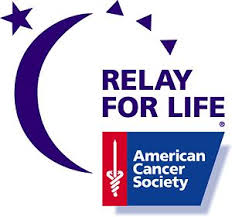The DU chapter of Colleges Against Cancer held their annual Relay for Life from 7 p.m. – 7 a.m. last Friday and Saturday in the Gates Field House. According to their Facebook, Colleges Against Cancer fundraises year round for the American Cancer Society, and Relay for Life is their biggest fundraiser of the year. Relay for Life is a 12-hour event to celebrate, remember and support those suffering from cancer.
“The idea is that cancer never sleeps, so for one night neither do we,” said Jessica Wright, president of Colleges Against Cancer and event chair of Relay for Life.
Wright added that the event slogan is “Celebrate. Remember. Fight back.”
“One of the main purposes for it besides fundraising is to honor and show support for survivors and caregivers,” said Hayley Zulkoski, a committee member of Colleges Against Cancer.
According to Wright, Colleges Against Cancer raised more money and had more Relay for Life participants this year than they did last year. So far they have raised over $14,400 from their events, mostly from Relay for Life, and there were 33 teams registered with a total of 188 participants. Last year, Colleges Against Cancer raised $12,355 and there were 155 participants in Relay for Life.
The theme of Relay for Life also changes every year, and this year the theme was superheroes. Event activities included volleyball tournaments, dodge ball tournaments, superhero trivia, giant Twister, self-defense classes from Rape Agression Defense (RAD) and yoga classes. There was free food from the DU Grilling Society (DUGS) and music from a DJ who is a cancer survivor. According to Wright, everything for the event is donated, so Colleges Against Cancer does not have to pay for anything.
The event also featured survivor speakers, including a ten-year-old leukemia survivor and his sister. In the evening, there was a luminaria ceremony where people could write the name of a loved one they have lost or someone who is fighting against cancer on a paper lantern. Then the lights were turned off and the lanterns were lit while people took turns walking around the track for the people they were relaying for.
“For me the best part of the night is always the survivor speakers and the luminaria ceremony,” said Wright. “We get to meet [the survivors], hear their story and let them know that we are there to support them. And the luminaria ceremony is just such a powerful, moving experience, getting to see all of the bags lit around the track and seeing people walk for who they have lost or are supporting.”
Most people register for Relay for Life as a team, according to Wright. The idea is for each team to fundraise on their own before the event. Each member of the team also has to pay a registration fee of $10 and to get a t-shirt they have to fundraise $100 each. Wright said that on a small campus like DU, teams usually consist of about six people, but Greek chapters sometimes have more.
“One of the main ideas behind Reaelay is for at least one of the people from your team to be doing laps around the track at all times,” said Zulkoski. “Cancer patients never get to rest. Having someone always walking around the track is a reminder of that.”
According to Wright and Zulkoski, Colleges Against Cancer plans for Relay for Life all year, and they start having team captain meetings in winter quarter to talk about fundraising ideas. There are also resources for fundraising available on the American Cancer Society website.
Colleges Against Cancer hosts several other fundraisers throughout the year, including the bi-annual Burritos for Boobs night at Illegal Pete’s; Think Pink Week in October, which promotes awareness and support of breast cancer; and All Cancer Week, which will be new this spring and promote awareness and support of various cancers.
“We are an organization that is doing so much good and creating a public image of giving back to the community,” said Zulkoski. “We get overlooked because we’re not a big organization, but I think it’s something everyone should know about.”
Wright agreed and emphasized the statistics related to cancer.
“One in three people in their lifetime will be diagnosed with cancer, and one in 100 college students is a cancer survivor. That means how many people on our campus are survivors?” she said. “I think if we keep doing these things we won’t have to have those numbers anymore. Nobody should ever have to hear the words, ‘you have cancer.’”
People interested in getting involved with Colleges Against Cancer or Relay for Life can email durelay1@gmail.com.











